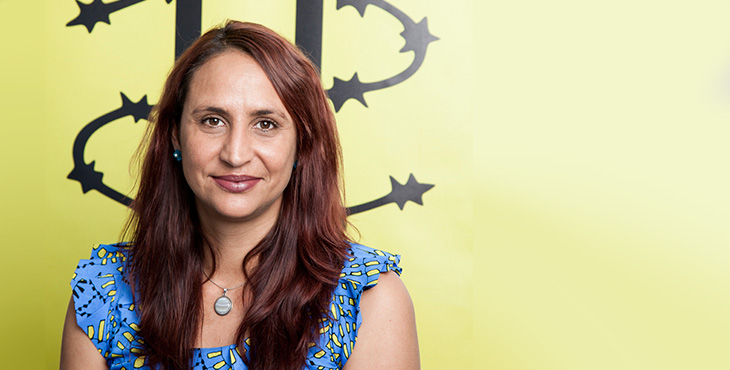
About Tammy
Tammy is a Nigena woman from Derby in the Kimberley of Western Australia and mother of two children. She is currently Indigenous Rights Manager at Amnesty International Australia, and a member of the WA Aboriginal Lawyers Committee. Between 2011 and 2014 she was a Director of the National Congress of Australia’s First Peoples. Tammy was awarded Young Female Lawyer and Lawyer of the Year for WA in 2012.
She studied Law at UWA, and completed her legal qualifications through the Aboriginal Legal Service of WA, where she worked for four years including as Managing Solicitor of the Law and Advocacy Unit. Throughout her career, Tammy has been involved in advocating for Indigenous peoples on local, state, national and international levels, including at the United Nations.
As a writer and editor she has had legal articles and social columns published on a variety of topics. She has spoken at conferences and forums all around the world. Through NAIDOC, she has been heavily involved in developing and running an incorporated association, event management, campaigning and media coordination.
Seeing injustice
I was born in Derby and descend from the Nigena. Although we left Derby when I was young, it will always be my hometown and I have family throughout the Kimberley. After Derby we lived in Exmouth, Mullewa, Marble Bar and Tom Price before I moved to Perth when I was 16 to complete high school. I have fond memories of all these towns and a strong appreciation and love for the natural beauty of Western Australia. I was the youngest participant in the inaugural Aboriginal pre-law Program at UWA in 1994. My fondest memories of UWA are related to Shenton House, the friends that I made and the staff that nurtured me. It was a very supportive environment that helped me through the highs and lows.
I think my urge to do this type of work came from my ancestry and upbringing. Dad is German/Ukrainian and was born in a refugee camp in Northam. His parents fled Europe after WWII and came to Australia as displaced peoples. Seeing Nanna and Granddad struggle in their attempt to assimilate into Australian life gave me great compassion and empathy for people who leave their homes and cultures because of war.
My maternal grandparents were Kimberley people and devout Catholics. Nanna was a Nigena woman raised at Beagle Bay Mission and Poppa came from northern Spain. They too had difficulty assimilating but nevertheless made their way, giving me a sense of the ways different cultures can coexist. In addition, my extended Aboriginal family from the Kimberley has many strong activists and aiders in reconciliation, so this this type of work is in my blood.
A turning point was when I was a teenager and Mum studied Aboriginal and Intercultural Studies. She taught us much about the atrocities committed against Aboriginal people. Growing up in regional and remote WA, I then, through my own eyes, started to understand the impact of these injustices.
Championing the cause
I've never heard myself described like a champion for justice - it's very humbling. I guess someone would say that because I have dedicated my career to social justice and worked across a variety of organisations and movements, mainly focused on Indigenous rights.
I started studying Law when I was 17 and have been advocating for social change ever since. Working at Amnesty is a natural progression for me because it campaigns for and promotes the human rights of all people, including Indigenous people and refugees.
Studying Law and having the ability to tailor my degree by studying social justice electives set me on a good path. I use my skills and knowledge gained every day in my work as a manager and campaigner for Indigenous rights at Amnesty International. I'm glad I practised as a lawyer before moving into policy and law reform, and now into campaigning. It's given me a good theoretical and practical understanding of the legal system and how it can be improved, and I think this makes me a more effective campaigner.